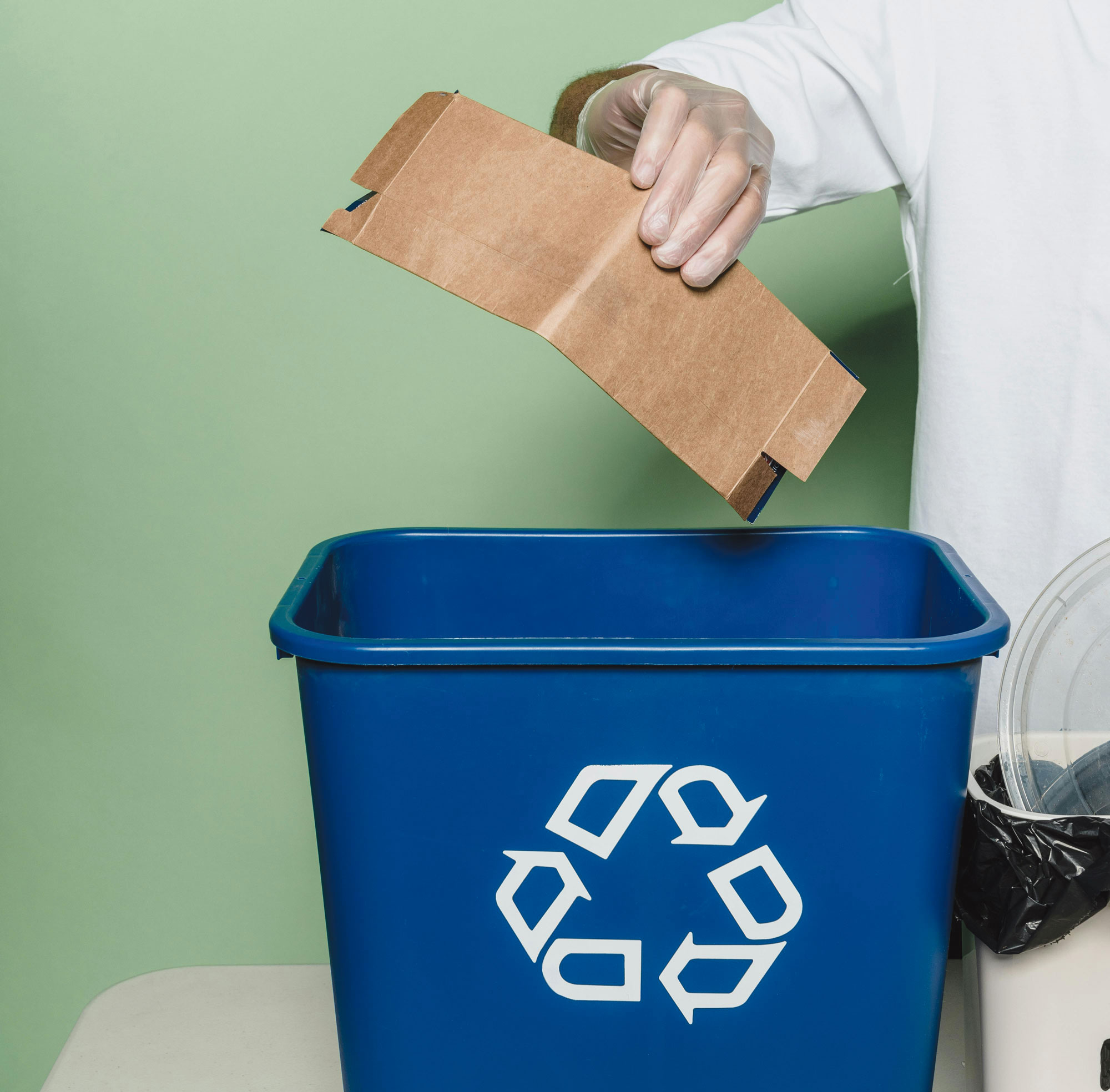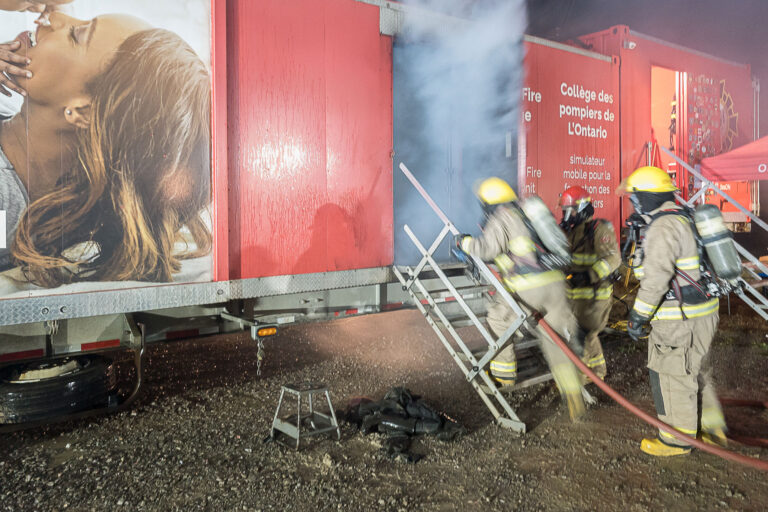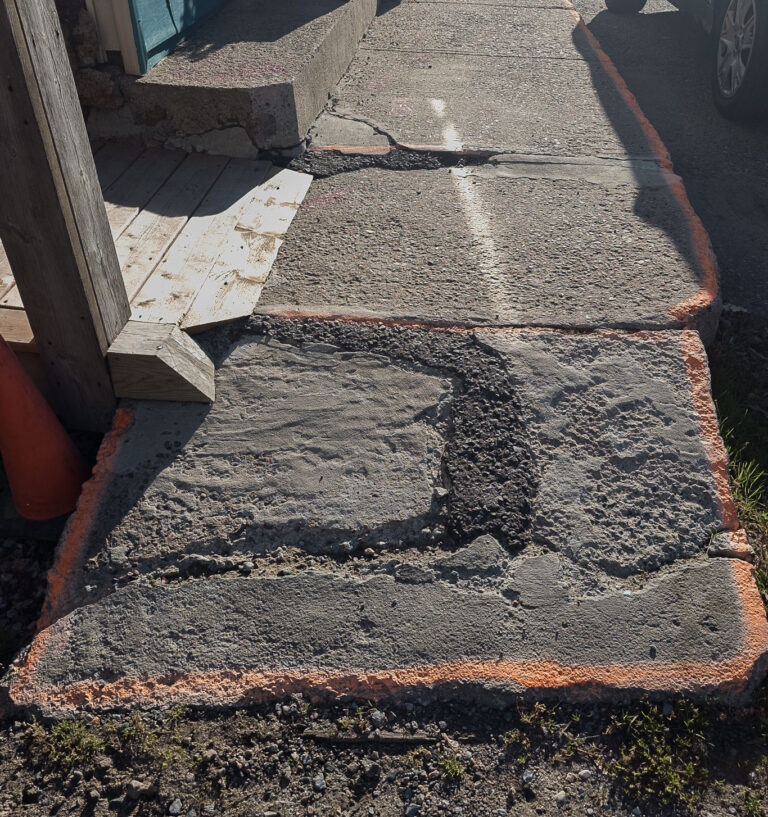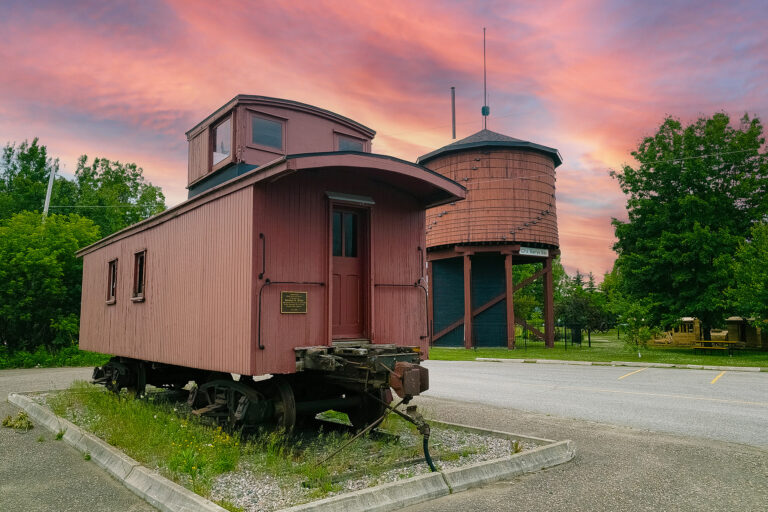
Robert Fisher
Staff Reporter
BARRY’S BAY – The Province of Ontario mandated change to recycling practices in the province which take effect Jan. 1, 2026. The new regime, known as producer pays, makes the producers of packaging materials responsible for the cost of recycling, taking the onus away from municipalities. Sort of.
The new system is a half-measure at best and the province has watered it down even further in response to complaints from producers.
The program is only for so-called eligible recyclables, which is recyclable materials from residences and select other groups. Eligible sources encompass single-family homes, multi-residential buildings, public and private schools, seasonal properties, certain retirement and long-term care homes and certain public spaces. Non-eligible are categorized as industrial, commercial and institutional (ICI) and encompass municipal buildings and facilities (e.g., libraries, arenas), industrial and commercial properties, non-profit organizations, campgrounds and trailer parks, commercial farms and churches or other places of worship.
Only recycling from eligible sources will be picked up curbside. Non-eligible sources will have to take their recycling to a designated landfill or transfer station with recycling bins or some municipalities may pick it up.
Municipalities had to decide whether they wanted to “opt-in” and continue to collect eligible recycling on behalf of producers and get paid for the service or “opt out” and have a contracted third party do curbside collection. Miller Waste is the contracted provider for Renfrew County.
The transition may be confusing for residents and businesses because they may be unsure who to contact with questions or concerns. Eligible source groups can contact Miller Waste. Non-eligible source groups need to contact the respective municipality.
The province, as a part of the change, is harmonizing what can be recycled province-wide. After Jan. 1, the list of recyclable materials will be the same in all municipalities. This will be helpful, for example, for someone who has a seasonal home in Barry’s Bay and a permanent residence elsewhere. They will no longer have to try to remember what can go into recycling in each place.
Some municipalities have expressed concern with the new system and that non-eligible source groups may simply put otherwise recyclable materials into general garbage, which could strain already tight landfill capacity. The Gazette contacted the Ministry of Environment, Conservation and Parks and Renfrew-Nippising-Pembroke MPP Billy Denault asking to speak about diminishing rural landfill capacity. Minister Todd McCarthy’s office did not respond to our request. Krystal Morneau, constituency assistant in Denault’s office, replied via email, “I understand that you reached out to the ministry directly with regards to this and I would encourage you to continue to communicate with them on any of your inquiries.”
The local process
Circular Materials, which is managing the new program on behalf of the province, provided some additional information to the Gazette via email.
Beginning Jan. 1, “a unified material list, including new materials,” comes into effect said Jennifer Kerr, director of community and media relations for Ontario.
New materials that can be recycled across the province starting in January include hot and cold beverage containers (e.g., coffee cups), deodorant and toothpaste tubes, ice cream tubs, black plastic containers and frozen juice containers. A full list of what will can be recycled is available at circularmaterials.ca/recycleontario. The company will be distributing information this autumn to help people prepare for the new process.
Important to note that alcohol beverage containers will no longer be able to go in household recycling. Those must be returned to a collection point, either a beer store or participating grocery store. Grocers have threatened to back out of selling alcohol to avoid having to take container returns. If grocers give back their licenses to sell alcohol and do not take container returns, residents will have to find alternative locations.
Residents should not see any change in how they put recycling out to the curb. Where municipalities contract out to Miller Waste, the only difference should be a truck with different logos. The date of recycling pickup may change, depending on the municipality. “All details about recycling service will be available to Madawaska Valley residents in mid-November,” Kerr wrote, on the organization’s website at circularmaterials.ca/on. Municipalities which are already transitioning to the new process can be searched on the link, including Bonnechere Valley, and Killaloe, Hagarty and Richards. Brudenell, Lyndoch and Raglan is not yet available.
Kerr also confirmed that beginning in January, resident concerns need to be addressed to the local contractor, Miller Waste. If the contractor is not able to assist, residents can contact Circular Materials. The email address for Miller is area3@millerwaste.ca and the phone number is 1-855-752-3257. The contact number for Circular Materials is 1-877-667-2626 and customerservice@circularmaterials.ca is the email address.
Kerr also addressed how clean some recycled items need to be. “Some grease and residuals on materials are acceptable,” she said. “For example, most pizza boxes are acceptable with the amount of ‘typical’ grease that would be left. Another example is paper plates. Paper plates with a bit of food stains are acceptable but if they are coated with birthday cake icing or sauce, then they should not be placed in the recycling bin.
robert@thevalleygazette.ca





